It's a part of culture shock training 101: most people who travel south of the United States are told at some point to not be surprised when they realize that dogs are considered pests in most places, rather then members of the family. Costa Rica definitely fits the bill: dogs are everywhere, and in most cases they are dirty, unkempt, and covered in fleas.
The dogs in Monteverde, though, have got it figured out. White people like them. White people will pet them. White people might even feed them. So, dozens of small dogs trot expectantly up to us as we walk to school in the mornings and plop down next to us as we eat lunch in the grass. And more often then not, we don't disappoint.
One dog in particular adopted our group the first week we were here. He shows up to the Institute most days as the first students arrives, and appears again at lunch time, almost without fail. Whenever a group of more than a few students leave the Institute, he tends to follow. Once, he followed my Tropical Ecology class into the forest with us. We named him Toto; you can probably guess why.
Toto is an ugly dog. He desperately needs to see a dentist (and probably an orthodontist), doesn't smell great, and might have a flea or two. But he likes to turn steep, damp hills into his own slip-and-slides, lay his head on your lap (or on my computer keyboard, which doesn't help my productivity), and nibble your fingers, so in the end he is definitely a winner.
This story, though, is not about Toto. It's about Leche, the other ugly dog that captured my heart, and then I almost killed.
Last Saturday, seven of us decided to hike to San Louis, a three hour hike hundreds (and hundreds) of meters down the Pacific side of Monteverde. On the private property of one very lucky Costa Rican family is a stunningly beautiful waterfall. After we started walking, we realized we had an eighth member walking with us – a small white dog plagued with what looks like chronic pinkeye.
Dogs have followed us before – but they usually go no further than a few hundred meters before losing interest. Leche was different. He followed us, and followed us down the mountainside, waiting for us as we stopped for photo moments and water breaks along the way, without so much as a pet, let alone a scrap of food. He was still following us as the trail turned from a road into a one-track, puddle-ridden, muddy path.
We finally got to a bridge that Leche could not cross. And you really can't hold it against him. This bridge was sketchy even for us. After we crossed, he looked heartbroken. So I gave in, walked back across the bridge, and carried him across. A few hundred meters later, we reached another river crossing Leche could not do alone, so my friend Quinn hauled his sorry butt over that bridge, too.
The waterfall was beautiful and completely secluded – we were the only seven (Eight) people there. We ate lunch, and some of us tried to swim. Jesse made it in to his ankles and I made it to my waste; only Quinn went all the way in. Leche wandered around, sometimes in sight, sometimes not.
When we decided to leave a few hours later, Leche was nowhere to be found. We called for him (I'm not sure why that would have helped – we had given him the name only six hours earlier), looked for him on and off the trail, and even looked in the river to see if we saw any white balls of fluff floating against a rock. He was nowhere.
I felt like a total asshole. Here I go, messing with nature, carrying a dog over a bridge he never should have crossed. I should have heeded the voice of my dad in my head, the one that would never help me climb trees when I was a kid, because if I couldn't get up by myself, how would I get down? That poor dog probably killed himself trying to cross back over one of the bridges after he had gotten bored of us, and washed away with the river, never to be seen again.
Dejectedly, we trooped back to the entrance of the farm, where the owners reported to us that they had not seen Leche. After realizing just how steep the hill home was and getting really, really lucky, we flagged a cab that offered to take us back to Monteverde. The ride took just under 20 minutes; had we been walking it would have taken three hours, minimum.
We walked back towards our houses from the Institute. A few hundred meters up the road, we passed CASEM, the Monteverde women's crafts coop and coffee shop. A little brown puppy jumps out of the woods and crosses the street in front of us, chased by none other than Leche himself. This dog had hiked from the waterfall, over the bridges he hadn't wanted to cross, through a farm, and back along a long, long, uphill road to get home. And there he was, as nonchalantly as ever, annoying the hell out of a little puppy.
He didn't even say hello.

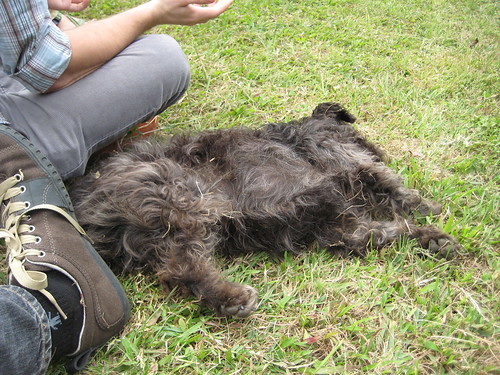
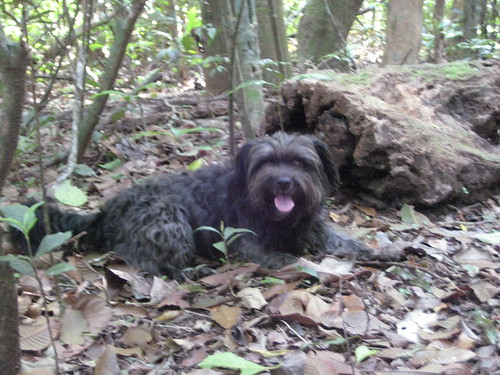
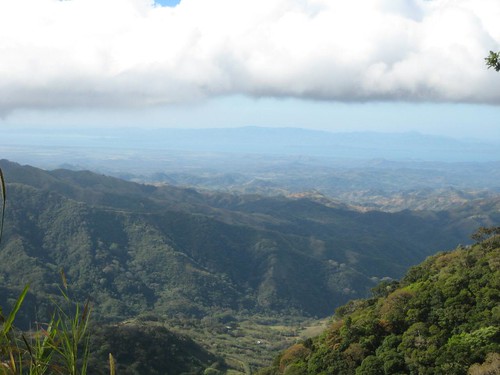
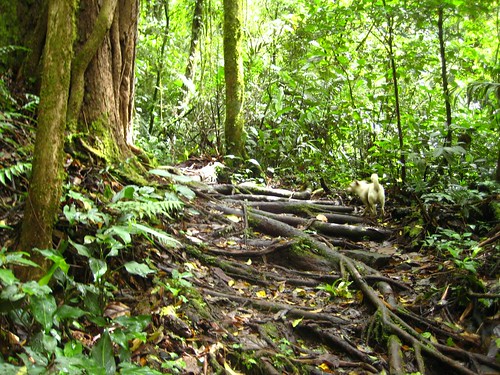
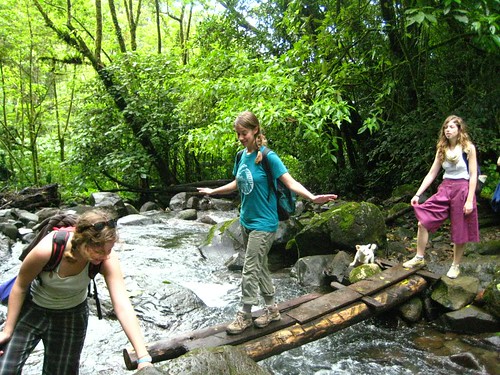
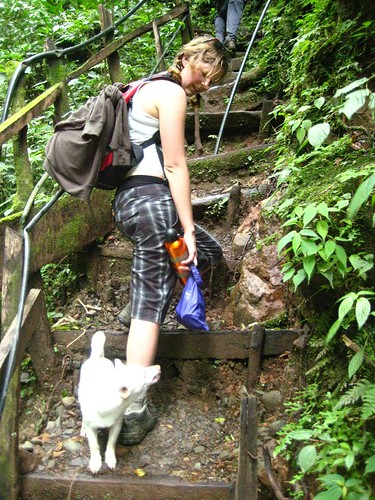
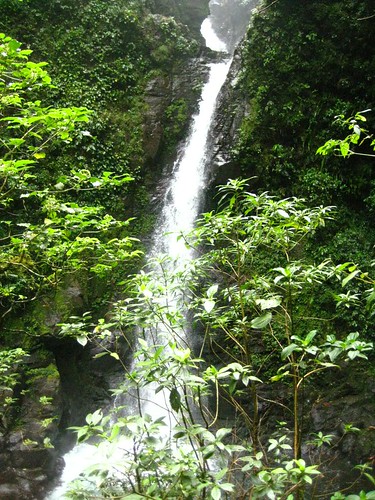
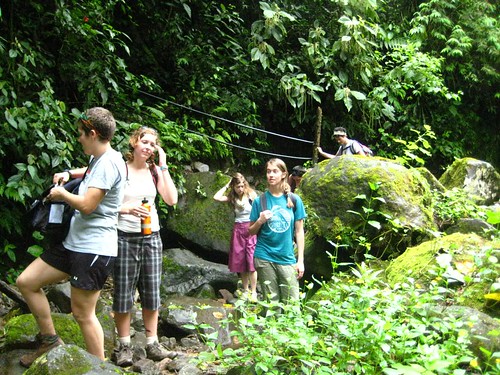
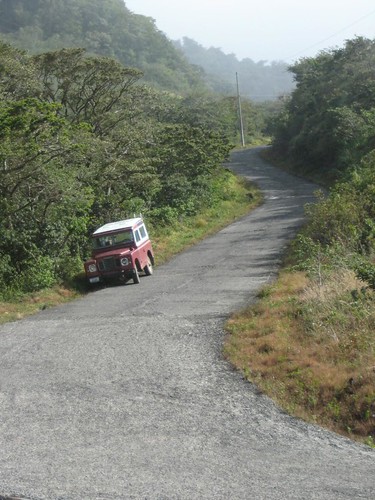




I recently came across your blog and have been reading along. I think I will leave my first comment. I don’t know what to say except that I have enjoyed reading. Nice blog. I will keep visiting this blog very often.
ReplyDelete